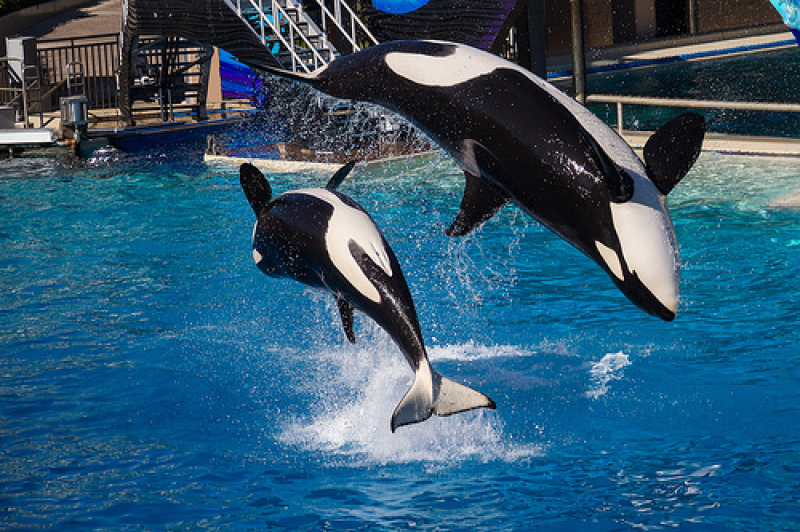
On Thursday, the California Coastal Commission issued a ruling on SeaWorld that bans the popular marine theme park from breeding captive orcas.
Various animal rights activist groups, including the People for Ethical Treatment of Animals (PETA) celebrated the decision.
According to Reuters, the ban only applies to SeaWorld San Diego in California and does not affect facilities on other states. As part of the ruling, the theme park is not allowed to let the large marine animals to breed or carry out artificial insemination procedures.
For PETA, the decision by the Commission serves as a victorious step towards ending the captivity of more orcas in SeaWorld.
"In nature, orcas choose their own mates," the group said in a press release. "But at SeaWorld, orcas are forced to breed on a regular basis. Male orcas are trained to float on their backs, and their trainers masturbate them to collect sperm."
"Females are artificially inseminated and forced to breed at a much younger age than they would in nature," PETA added.
SeaWorld San Diego then argued that the ruling issued by the Commission hinders the orcas' natural way of life.
"Breeding is a natural, fundamental and important part of an animal's life and depriving a social animal of the right to reproduce is inhuman," the theme park said in a statement according to the Associated Press.
The ban on SeaWorld was issued shortly after the California Coastal Commission approved the park's $100 million project to expand the holding tanks for the killer whales. The large tanks, which are set to be opened to the public in 2018, will be three times larger than the park's current enclosures.
According to SeaWorld San Diego, the new pools will provide the orcas a bigger space to swim while enhancing the park's research and viewing capabilities.
The decision by the California Coastal Commission to ban the breeding of orcas is the latest blow to hit SeaWorld. Back in 2013, the California park's attendance began to drastically decline shortly after the premiere of the documentary film "Blackfish." Produced by CNN films, the film focuses on the killer whale Tilikum, who is currently living in SeaWorld Orlando, Florida.
From 1991 to 2010, Tilikum was involved in the deaths of three individuals while living in captivity. The film "Blackfish" referenced these unfortunate incidents to focus on the consequences of keeping killer whales inside artificial enclosures and how captivity causes violent behavior.

















